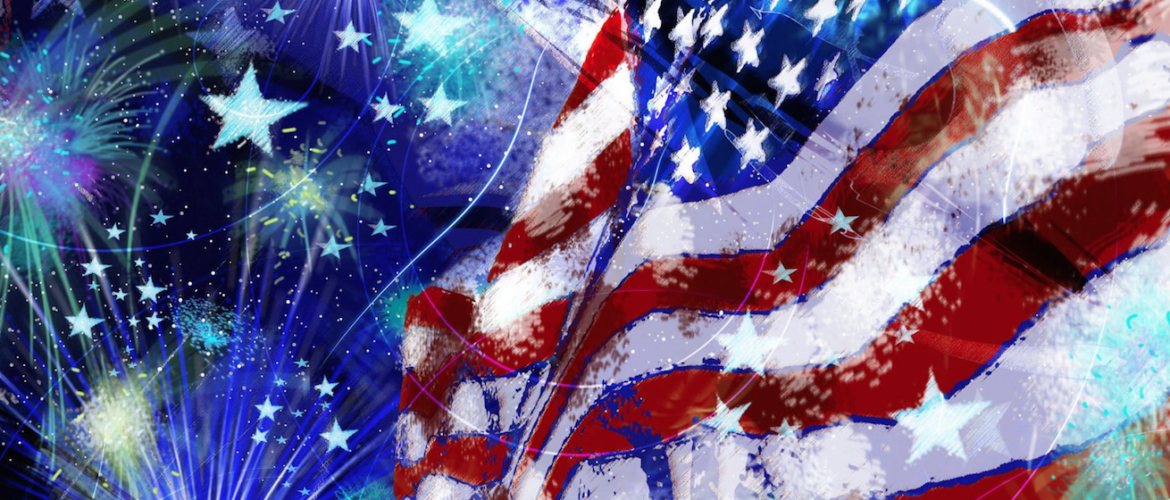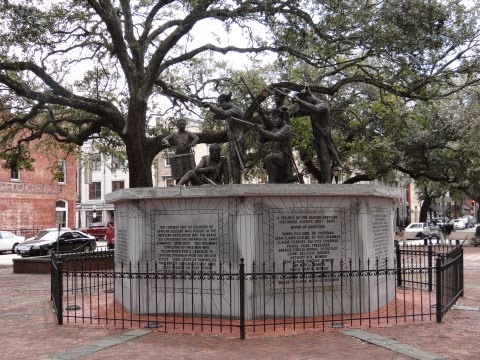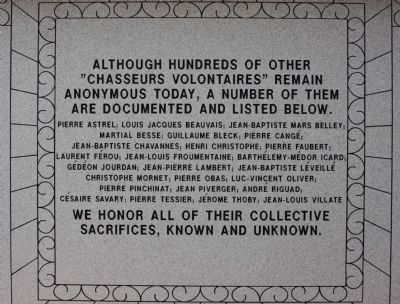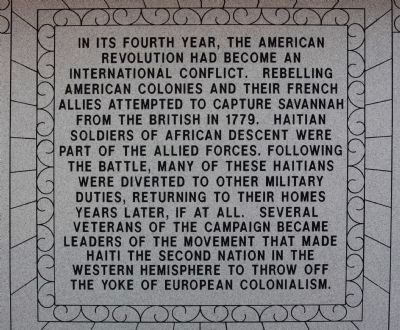Very few people know about the ambitious attack carried out by an allied fighting force on British occupied Savannah, Georgia in 1779; but for Haitians, Haitian-Americans, and friends of either of these groups, the Siege of Savannah will not be forgotten this 4th of July.
A little bit of history:
(History aficionados should be getting excited, non-history-buffs, please bare with me!)
Savannah, Georgia was captured by British forces in December, 1778. On October 9, 1779 a force comprised of American, French, and free Haitian soldiers laid siege on the city in an attempt to oust the British from their Southern stronghold.
But this battle isn’t one that people often remember. The question is, why?
Maybe it’s because it took place in the South. When I think of the Revolutionary War, I tend to picture the original 13 colonies, the midnight ride of Paul Revere, and other significant moments in the Northeast.
Or maybe it’s because we lost.
What had, for a moment, looked like a sure victory took a turn for the worse when British reinforcements suddenly arrived from South Carolina and the allies were forced into a hastened retreat . . .
But the substance of this story is not so much in the outcome of the battle, as it is in the retreat.
When the retreat began, it was the Chasseurs Volontaires de Saint-Domingue (the reserve unit of Haitian infantrymen) who rushed in to allow for the escape of the French and American forces. These free men voluntarily covered the backs of the other troops even though it meant increased fatalities for their own.
Though the allies faced severe losses in the battle (some of the worst of the war), their unit lived to fight another day due in large part to the sacrifice of the Haitian soldiers: Soldiers who already knew the value of freedom, and the importance of autonomy, and were willing to fight for it for their neighbor, despite the continued enslavement of the people in their own up-and-coming nation.
It is time that the Haitian contribution to American freedom make its way out of the shadows; beyond the confines of a handful of museums, and beyond the shadow cast by the Haitian Monument erected in Franklin Square in Savannah, Georgia. It is time that Americans knew about the men who came here voluntarily to help fight for our freedom, and it is time that we proudly embraced their contribution and allowed it to enter our collective conscience.
We easily accept Haiti’s current status as an impoverished nation dependent upon our wealth and resources, but how often do we take the time to acknowledge the role they (and so many other “outsiders”) played in our quest for freedom? Have we ever considered that we were, in fact, not the first to come to the other’s aid?
It’s something that Haiti, and our Haitian American citizens, have not forgotten; perhaps it is something we too should work harder to remember.
For those who may be prone to quickly forget a single battle fought in that long war, perhaps this thought will linger longer:
Many historians have suggested that France’s ability to come to our aid, to supplement our resources with more men, more guns, and more supplies, was due in large part to the wealth they procured from their most prosperous slave colony – Saint-Domingue.
Our freedom came at a cost, one that we paid in lives lost and sacrifices made; but it’s time that we expanded our notion of “we”, because it undoubtedly includes Haiti.
As we celebrate our freedom and relative prosperity this 4th of July, I think maybe we should take the time to see Haiti just a little bit differently.
What do you think?
by Erin Nguyen on July 1, 2015





